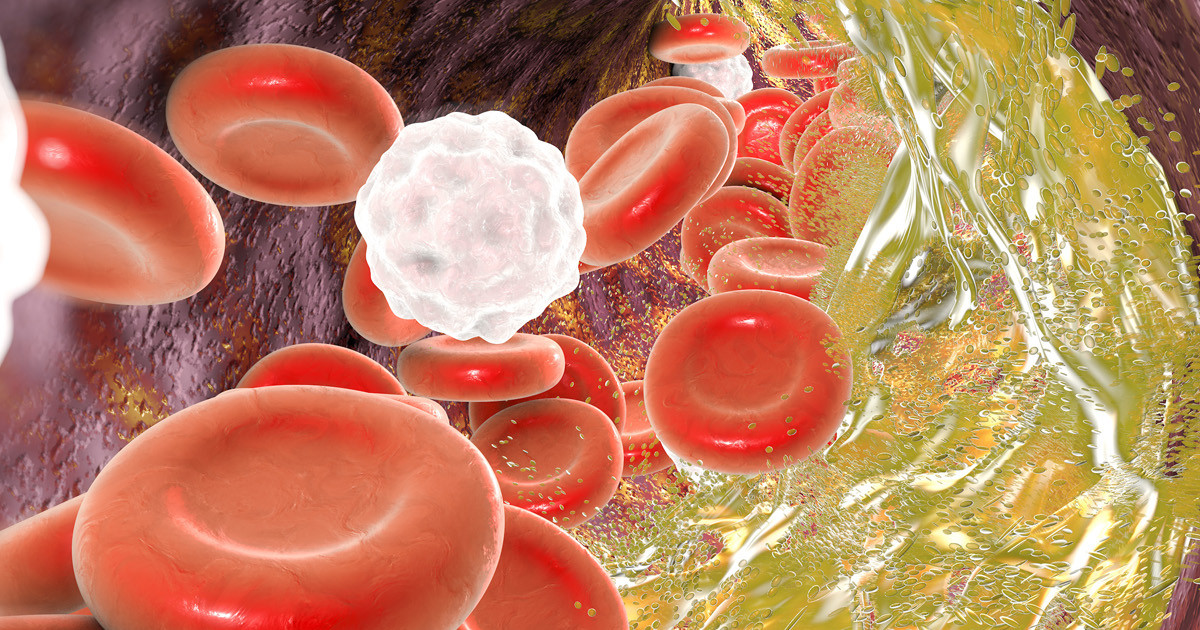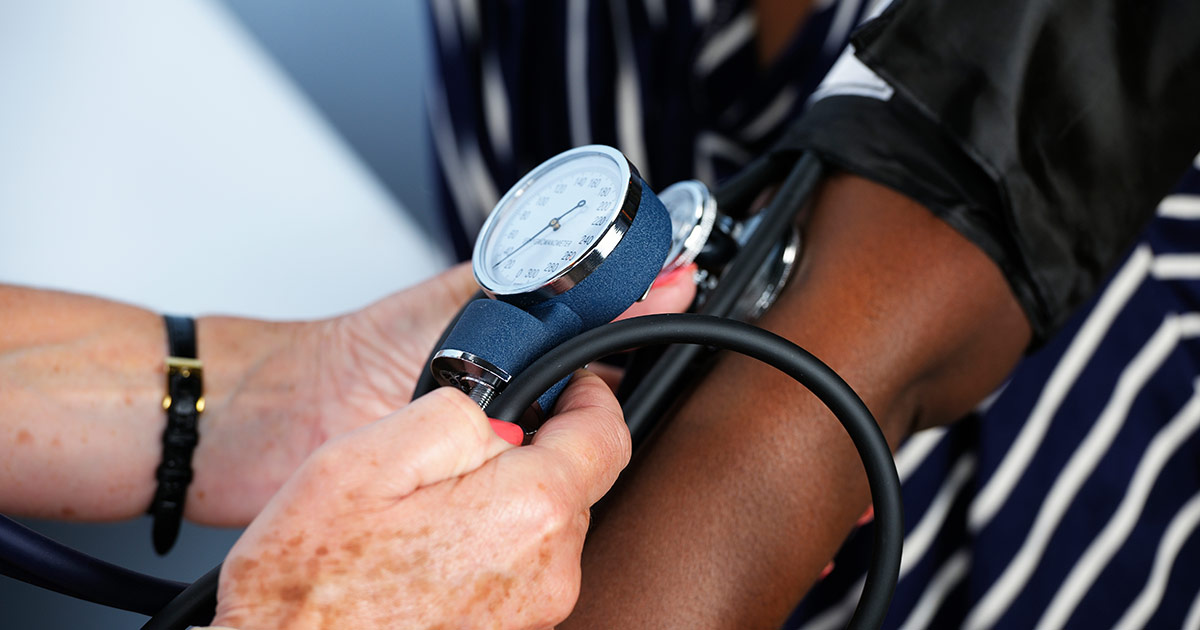Remarkable Habits That Improve Heart Health
Heart disease is the leading cause of death around the world. Coronary and peripheral artery diseases, which develop as a result of plaque formation within the walls of the arteries, can begin to restrict the passage of oxygen-rich blood over time. This can lead not only to increased blood pressure but an elevated risk of obstruction of the arteries that supply the heart and the brain. This is the most common type of heart disease. Heart attacks and strokes account for the vast majority of the 600,000 heart-related deaths that occur annually in the United States alone. Heart disease is serious business, but the good news is it's also largely preventable.
It's time to address some of the habits that can help improve heart health now.
Maintain A Healthy Weight

Obesity is one of the biggest factors in the development of heart disease, as well as many of the contributing factors. Carrying excess weight, especially around the belly, puts individuals at risk for developing diabetes, high blood pressure, obstructive sleep apnea, and, ultimately, cardiovascular disease. Fatty tissue contributes to the development of dyslipidemia, or an unbalanced blood cholesterol content, by encouraging the manufacture of low-density lipoprotein cholesterol ('bad' cholesterol) and lowering the heart-protective high-density lipoprotein cholesterol ('good' cholesterol). What's more, fatty tissues require a hefty blood supply, so the more weight individuals carry, the more blood volume their heart is forced to pump to keep up with demand. Body mass index (BMI) is a calculation of height and weight used as a guideline to help individuals maintain a healthy weight. The higher an individual's BMI is, the greater their risk for heart disease is. Individuals should aim for an index of twenty-four or less. Weight loss is relative, so individuals shouldn't be discouraged if their BMI starts out higher than they wanted. A weight loss of just ten percent, regardless of where someone starts, significantly reduces their risk and puts them on the path to a healthy heart.
Uncover more habits to help with heart health now.
Limit Processed And Fast Foods

Fast, frozen, and boxed foods are very convenient, but have little to offer in the way of nutrition. Because of the way these foods are mass-produced and the preservation they require for safety, they tend to be high in the types of ingredients associated with high blood pressure, elevated blood glucose, and heart disease. Sodium is a common taste-enhancing additive and is known to contribute to hypertension. Nitrates and phosphates are used to cure processed meats like sausage, which not only incur the same risks as sodium-filled foods, but also contain very high levels of saturated fat. The refined grains used to make most kinds of pasta and white rice, separated from their fibrous husks, release glucose quickly in the body, resulting in weight gain and high blood glucose levels. Additionally, processed foods have been stripped of their fiber and minerals, further negating their nutritional, heart-healthy value. Thus, individuals should limit processed and fast foods in their daily diet, focusing instead on whole-grain alternatives and raw fruits and vegetables. They should replace cold cuts and cured meats with fresh, lean proteins like fish or chicken, and skip the fast food line more often in favor of healthier homemade meals.
Keep reading to learn more about improving heart health through specific habits.
Take Stress Relief Seriously

There has been lots of research recently regarding the physical impact of psychological stress on our bodies. Individuals may be tempted to dismiss chronic stress as an inescapable part of daily living, but they shouldn't. We release adrenaline and cortisol in response to a perceived threat. In the natural world, that threat should be short-lived, and the stress response should end. In our modern world, though, the threats are more subtle and chronic, and we release cortisol continuously in response to hectic work schedules, family pressures, financial issues, et cetera. Adrenaline can raise blood pressure and heart rate, and cortisol, like all steroids, raises glucose, promotes weight gain, and decreases immunity. Stress is real and should be addressed like any other health concern. If individuals experience chronic stress that is affecting their daily life, they can be sure it will eventually affect their heart. Everyone should take stress relief seriously and formulate a daily and weekly plan for decompression. Exercise, yoga, meditation, and spending more time with loved ones are just a few of the ways to do this.
Understand the next healthy habit for the heart now.
Increase Consumption Of Fruits And Vegetables

Fruits and vegetables are the perfect foods for maintaining a healthy heart. The central benefit of these superfoods is their fiber content. Fiber, or what we have traditionally called 'roughage,' are the thin, indigestible filaments that make up the bulk of fruits and vegetables. When we ingest fiber, it stimulates movement in our lower gastrointestinal tract and helps keep our bowels regular. Fiber also plays a huge role in cholesterol balance and weight loss and binds up excess cholesterol as it moves through the gut, helping flush it out. Fruits and veggies are low in fat and calories as well, making them great for portion control. Use the 'half-plate' portion rule when filling up a plate, and increase fruits and vegetables at every meal, including snacks.
Get the details on the next amazing habit to improve heart health now.
Replace Sugary Beverages With Water

Soda and sugary beverages contain a lot more sugar than many individuals may realize. One sixteen-ounce bottle of soda can have a whopping fifty-two grams of sugar, which is four times as much as in a piece of cake. The calories consumed in soda are referred to as empty calories, meaning they have no nutritional benefit. Sugary drinks can contribute significantly to weight gain and the development of diabetes, two huge risk factors for heart disease. Cutting soda, athletic beverages, and beer is usually the first advice given to anyone embarking on a weight loss or cardiovascular program. Sugary beverages should be replaced with water instead. If individuals dislike the taste of water, they can use a sugar-free sweetener, fruit, or a splash of real fruit juice to add flavor.
Read more about habits that improve heart health now.
Exercise Regularly

An individual can significantly improve the health of their heart by living an active lifestyle and exercising regularly. Regular exercise helps an individual achieve a healthy body mass index and maintain it. A healthy weight and body mass index lower an individual's overall risk for the development of coronary artery disease, stroke, heart attack, diabetes, and many other diseases and conditions that can have direct or indirect adverse effects on their heart. Muscle tissues that do not get exercised can lose their tone and do not maintain their strength. The heart is the most important muscle in the body, and it needs to be exercised properly to stay healthy, maintain its tone, and retain its strength like any other muscle. Without regular exercise, an individual's heart can develop conditions associated with weakness of the heart muscle and an inability to pump blood around the body efficiently.
Learn more about healthy heart habits now.
Stop Smoking

Regular smokers can improve and maintain the health of their heart if they stop smoking. Not only does cigarette smoke contain nicotine, but it also contains thousands of other chemicals and compounds, such as carbon monoxide and tar. These chemicals are known to encourage the accumulation of a fatty substance, plaque, in the arteries. These chemicals do this by causing damage and injury to the walls of the blood vessels, adversely affecting cholesterol, and interfering with normal levels of fibrinogen, a substance involved in the blood clotting process. Smoking cigarettes increases an individual's heart rate continuously, which makes their heart work harder than it would otherwise. The chemicals in cigarette smoke also cause the walls of the main arteries in the body to contract, tighten, and stiffen. An individual who is a regular smoker and has other cardiac risk factors has at least a thirty percent higher chance of developing heart disease than a non-smoker.
Keep reading for more information on what habits are healthy for the heart now.
Lower Cholesterol And Triglycerides

Individuals need to ensure their cholesterol and triglycerides stay at a low or acceptable level if they want to maintain optimal heart health. Cholesterol is critical to the body and provides the structure for cell membranes and gives nerve cells proper insulation. However, cholesterol is made of fat, so it cannot dissolve in the blood due to high water content. High-density lipoprotein (HDL) and low-density lipoprotein (LDL) are both proteins that move cholesterol around the body. However, low-density lipoprotein tends to stick to the blood vessel linings, where high-density lipoproteins help clear extra cholesterol out of the blood vessels. A combination of exercise habits, genetics, age, and diet is what determines the amount of each type of cholesterol in an individual's blood. LDL that sticks to the blood vessel walls acts as an irritant when it is absorbed, which induces a rush of white blood cells and other blood components to the site. These substances congregate to form big fatty deposits that accumulate in the blood vessels. Because the coronary arteries are especially prone to this type of buildup, it is imperative to keep LDL cholesterol low to maintain heart health.
Discover additional habits for a healthy heart now.
Take Deep Breaths

An individual who experiences stress regularly can take deep breaths to help maintain the health of their heart. When an individual becomes stressed mentally or emotionally, certain hormones are released in their body. These stress response hormones cause several changes, including increases in heart rate, respiration rate, blood pressure, and blood glucose. These changes are beneficial when an individual is in danger, but it is unhealthy to have continuous or excessive stress responses. An inability to cope with mental or emotional stress leads to chronic high blood pressure, as well as increased risks for abnormal heart rhythms, stroke, and heart attacks. When an individual feels mentally or emotionally stressed, they can perform breathing exercises that involve taking deep breaths to help lower the level of stress hormone in their body. Inhaling deeply through the nose and exhaling deeply through the mouth is one method proven to help reduce levels of stress hormone and its effects on the body.
Read more about how to maintain heart health with certain habits now.
Keep Blood Pressure Low

A healthy heart can be obtained by taking certain measures like keeping blood pressure low or at an acceptable level. Blood pressure is a measurement of the physical force of the blood pushing against the blood vessel walls as it travels through them. Blood pressure is measured by two different values, one being the blood pressure when the heart muscle relaxes and the other being the blood pressure measurement when the heart muscle contracts. An individual's blood vessels can adjust to greater blood volumes to an extent. When an individual's blood pressure is beyond the ability of the blood vessel wall to expand, it causes the formation of fissures or cracks in the blood vessel lining. These cracks and fissures are known to encourage the formation of plaque. Plaque develops when damage in the blood vessels summons the influx of white blood cells, platelets, and other substances to the site of the damage. These components combine with fats or lipids to form the hardened plaque inside of the vessel. Accumulation of plaque in the arteries can cause deadly diseases and conditions that affect the structure and functionality of the heart. Prevention of this mechanism by keeping blood pressure low will ensure an individual's heart remains healthy.
